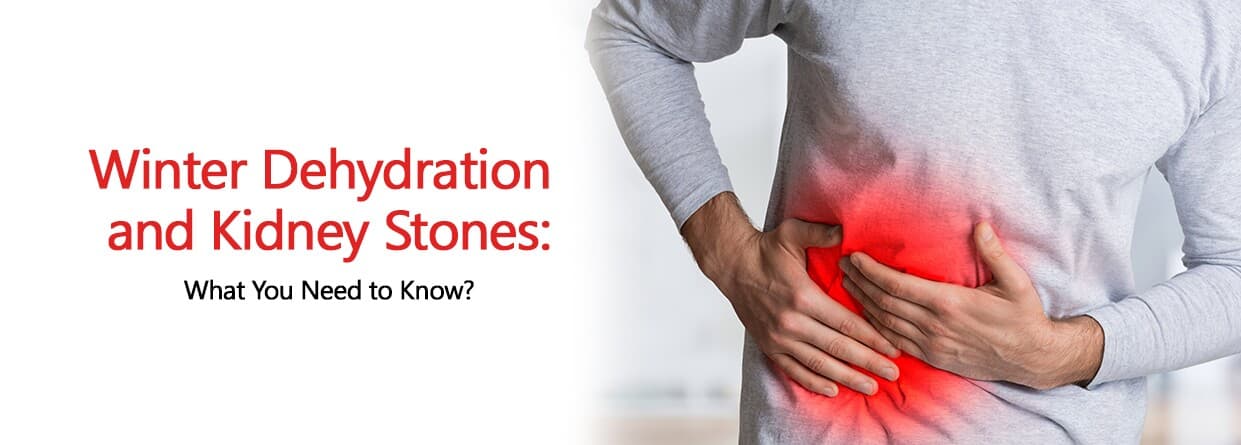
Winter is a season when most people get sick because of low metabolism and low immunity. Such a health condition can directly or indirectly affect kidney health. In winter, people tend to consume less water, which concentrates urine. This allows minerals and salt to crystallise, eventually leading to kidney stones. However, kidney stones don't cause symptoms unless they reach the uterus, the tube connecting to the kidney bladder.
Winter dehydration can increase the risk of kidney stones as people drink less water. This makes urine thicker. Hence, the minerals can easily crystallise and turn into stones. However, this is not the only cause of kidney stone formation. There are many direct and indirect factors responsible for this condition. In this blog, we'll discuss why winter increases the chance of kidney stone formation along with preventive tips. If you or a family member is suffering from kidney stones, please contact our Urologist at CMRI Hospital, Kolkata.
Winter is a season when most people get sick because of low metabolism and low immunity. Such a health condition can directly or indirectly affect kidney health. In winter, people tend to consume less water, which concentrates urine. This allows minerals and salt to crystallise, eventually leading to kidney stones. However, kidney stones don't cause symptoms unless they reach the uterus, the tube connecting to the kidney bladder.
Here are some direct and indirect factors that can contribute to this problem, including:
Winter dehydration can significantly increase the risk of kidney stones due to reduced fluid intake and other contributing factors like cold weather, salty foods, and UTIs. Staying hydrated, maintaining a balanced diet, and staying active are key to preventing dehydration and kidney stones.
If you experience symptoms or have concerns, don’t hesitate to consult your healthcare provider for personalised advice and treatment. Your health is essential, so take proactive steps to stay hydrated and protect your kidneys this winter.
A kidney stone patient should drink at least 8-10 glasses (2-3 litres) of water daily to help flush out stones and prevent new ones from forming.
Tea and coffee can contribute to kidney stones if consumed in excess, as they contain oxalates and caffeine, which can increase the risk.
Yes, kidney stones can be extremely painful, causing sharp pain in the back, side, or abdomen, especially when passing through the urinary tract.
The best water for kidney stones is plain, filtered water, as it helps dilute urine and prevents stone formation. Avoid sugary or carbonated drinks.
Written and Verified by:
-Dr.-Pradip-Chakrabarti-(-Transplant-Unit-.-Renal-Science-).webp&w=256&q=75)
HOD Renal Sciences, Senior Consultant Transplant Surgeon Exp: 45 Yr
Renal Sciences
Dr. Pradip Chakrabarti is the HOD of Renal Sciences and Senior Consultant Transplant Surgeon at CMRI, Kolkata, with over 40 years of experience. He specializes in kidney and pancreas transplantation, complex dialysis access procedures, and laparoscopic renal surgeries.
Similar Renal Sciences Blogs
Book Your Appointment TODAY
© 2024 CMRI Kolkata. All Rights Reserved.